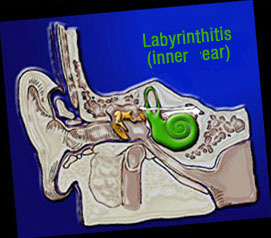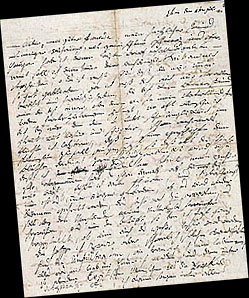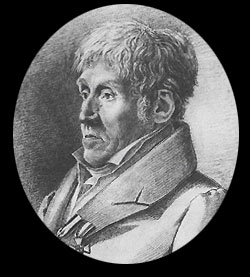| |
|
 |
| |
|
One of the most surprising facts about Beethoven is that he was deaf. How can a musician, a composer, lack what we would imagine to be his most important sense? The first people he confided in were those who were geographically far from him, but in whom he had absolute confidence: those who lived at Bonn. When he could no longer hide his handicap, Beethoven used notebooks in which visitors could write what they wanted him to know, or equally ask what they wanted to know. Because of this, we lack, of course, the most important part to understanding better his personality: what he replied... Here are some extracts from two letters to his friends, dated 1801, in which we get an idea about the deaf composer talking about his increasing deafness. |
|
Lettre of Beethoven
to Karl Amenda |
"... Know that my noblest faculty, my hearing, has greatly deteriorated..." "... How sad is my lot, I must avoid all things that are dear to me..." "... Oh how happy I should be if my hearing were completely restored, then I would hurry to you...;" "... Of course, I am resolved to rise above every obstacle, but how will it be possible? ..." "... I beg of you to keep the matter of my deafness a profound secret to be confided to nobody, no matter whom..." |
|
"... My hearing has grown steadily worse over the last three years, which was said to be caused by the condition of my belly..." "... For two years I have avoided almost all social gatherings because it is impossible for me to say to people "I am deaf". If I belonged to any other profession it would be easier, but in my profession it is a frightful state..." "... It is curious that in conversation there are people who do not notice my condition at all; since I have generally been absent-minded, they account for it in that way. Often I can scarcely hear someone speaking softly, the tones yes, but not the words. However, as soon as anyone shouts it becomes intolerable..." |
Extracts from a letter
from Beethoven to Franz
Gerhard Wegeler, |
Beyond the fact that Beethoven deafness was exaggerated and dramatized, it’s important to note that it was not complete deafness from the start. To be true, it was an infirmity that established itself slowly, and also developed itself quite erratically. What was really dramatic was the moment in which the young, successful composer and virtuoso had to accept that he was suffering from a chronic, incurable illness with which he will have to live… and it was going to get worse. When it became clear that Beethoven was deaf, he accepted it. It was in the midst of his heroic period, and it documented in some authentic Ludwig van Beethoven quotes written in the margins of the Razoumovsky Quartets. It could safely be stated that even to the end of his life, there were days in which he could hear a bit. Was Beethoven deaf? In many other accounts, it was believed that he was stone deaf. When the communication difficulties finally became too great, more or less around 1818, Beethoven used leafs of paper or tablets, where his friends and visitors wrote down what they wanted to tell him, or ask him. These are known now as the "Conversation Books". Though these are some interesting facts about Beethoven, we lack the answers the Master provided to the questions written there. Except for a few cases, all we can do is guess what he might have said. |
|
|
| |
|
Let Beethoven himself tell us of the treatments he was advised by his doctors for his deafness and his "entrails." Some of these "remedies" today may be enough for someone to look into seeking the advice of a lawyer that uses legal case management software. Here is an extract from the same letter from Beethoven to Franz Gerhard Wegeler as above, dated 29 June 1801: "The cause of this must be the condition of my belly which as you know has always been wretched and has been getting worse, since I am always troubled with diarrhea, which causes extraordinary weakness. Frank wanted to tone up my body by tonic medicines and restore my hearing with almond oil, but prosit, nothing happened, my hearing grew worse and worse, my bowels remained as they had been. This lasted until the autumn of last year and I was often in despair. Then came a medical ass who advised me to take cold baths for my health; A more sensible one advised the usual lukewarm Danube bath. That worked wonders, my belly improved, but my deafness remained and became even worse. This last winter I was really miserable, since I had frightful attacks of colic and again fell back into my previous condition. Thus I remained until about four weeks ago, when I went to Vering, thinking that my condition demanded a surgeon, and besides I had great confidence in him. He succeeded almost wholly in stopping the awful diarrhea. He prescribed the lukewarm Danube bath, into which each time I had to pour a little bottle of strengthening stuff. He gave me no medicine of any kind until about four days ago when he prescribed pills for my stomach and a kind of herb for my ear. Since then I can say I am feeling stronger and better, except that my ears sing and buzz constantly, day and night". |
|
|
|
|
|
We know that Beethoven's talent never diminished despite his failing hearing but what are the origins of this problem? Here are some more Ludwig van Beethoven facts. No deafness specialists existed at that time, and all was waiting to be discovered. While we will never know for certain what made Beethoven deaf, here are some opinions... |
|
The Doctor Wagner made the autopsy of Beethoven on March 27th 1827. Although the original of his report has been lost, a copy was preserved. Here is a short extract: "... The ear cartilage is of a huge dimension and an irregular form. The scaphoïde dimple, and above all the auricle, were vast and had one and a half times the usual depth...". |
Conversation notebook used by Beethoven |
|
One hundred years later, Doctor Marage brought up Beethoven’s deafness at the conference of the French Academy of Sciences on January 9th and 23rd 1928, as well as December 2nd 1929. He thought that Beethoven's deafness was due to a labyrinthitis of intestinal origin, that is to say that he had a lesion of the inner ear. According to Doctor Marage, who has studied Beethoven's letters, buzzing noises and other sounds started at around 1796. Deafness broke out in 1798 and Beethoven had lost 60% of his hearing by 1801. In 1816 he was completely deaf. |
|
Doctor Marage goes on to explain that Beethoven's whole hearing system was, in effect, hyper-sensitive and that, due to this, he was more prone to illness. Marage's theory is therefore that of the labyrinthitis: "... When deafness begins with high sounds, and overall when they are preceded by buzzing noises, whistling noises and an exaggerated sensitivity to the screaming voice, it is due to an internal lesion, that is to say that there is a problem with the ear labyrinth and the cerebral centers, from where emerge the branches of the acoustic nerve..." |
|
Professor Porot and Doctor Miermont Bring Up Beethoven’s deafness in their study from 1986 "Beethoven et les Malentendus". The authors state: "... In particular, we will never know the state of the ossicles...". Nevertheless, going by Beethoven's writings - the dates and the symptoms he describes, they make the following observations: "...This is about the beginnings of deafness in a young man, without previous inflammation of the ear, and without hearing problems in the family, a progressive devolution, without improvement despite various remedies prescribed by his doctors..." The two authors diagnose: "... either neurolabyrinthitis, or otospongiose or labyrinthitis...". And, concerning the probable cause, estimate: "... the great cause of deafness at the time: syphilis...", but it's never been proved that "... Beethoven would have been hit by syphilis by the end of his adolescence...". |
|
|
| |
 Source: www.conseils-ORL.com |
The complete definition of labyrinthitis can be found on the Vulgaris Médical in French. A particular symptom of those who have caught labyrinthitis is that of vertigo. No document that we have, neither by Beethoven nor by his friends mentions anything about vertigo. The mystery deepens... “labyrinthitis: term comes from the greek laburinthos.burinthos. Inflammation of the labyrinth of the inner ear, which is a group of cavities and canals communicating between one another. The labyrinth or bony labyrinth is divided into three sections: the vestibule, the semi-circular canals and the cochlea. The labyrinth membrane is made up of a network of little pockets containing the endolymph natural lymphatic liquid and the semi-circular canals which are the organs for balance, the vestibule with the utricle and the saccule, as the cochlear canal wich is the organ of hearing. The different types de labyrinthitis are:
General symptoms of labyrinthitis::
Complications:
Treatments:
|
|
The more common term is otosclerosis. According to some deaf websites, this is a condition of the middle ear in the stapes stirrup bone which is fixed in place where it attaches to the inner ear. This prevents sound transmission. It usually starts at an early age and can progress to deafness. It can affect one or both ears. Today, it is treated surgically, usually with a stapedectomy. Mack Hicks |
|
|
|
| Many
thanks to Hannah SALTER for her translation
of this page from French into English and to Alexandre LOPEZ who translated the medical terms and made sure the meaning was right © 2001 - 2013 |
|
||||||||||||||||


